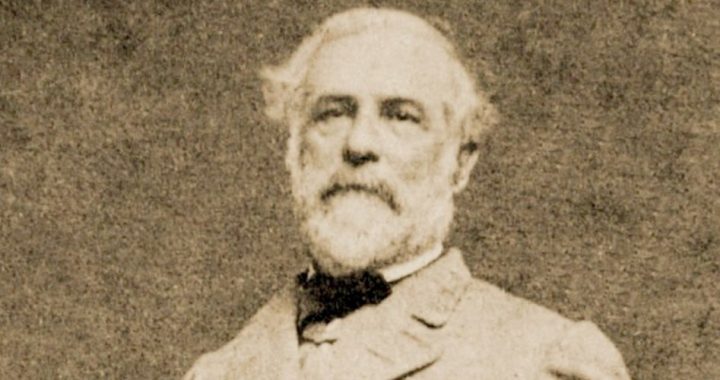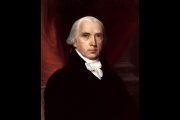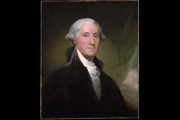
On the other hand, Georgia commemorates Lee’s birthday on the day after Thanksgiving, while Florida names January 19 as a legal and public holiday in honor of the Confederate general.
Historians recall his many early successes in the American Civil War (War Between the States) including the Battle of Fredericksburg, the Battle of Chancellorsville, the Battle of the Wilderness, the Battle of Cold Harbor, and the Second Battle of Bull Run (or Second Manassas).
Following his victory at Fredericksburg, General Lee, a normally quiescent and thoughtful individual, was “jubilant, almost off-balance, and seemingly desirous of embracing everyone who calls on him,” according to the Richmond Examiner.
At Chancellorsville, Lee, outnumbered five to two, won what some historians consider his greatest victory of the war, while his victory at the Battle of Cold Harbor caused Union General Ulysses S. Grant later to write: “I have always regretted that the last assault at Cold Harbor was ever made…. At Cold Harbor no advantage whatever was gained to compensate for the heavy loss we sustained.”
Even the Seven Days Battles, which ended essentially in a draw, caused Lee to note how close a major victory was over his numerically superior enemy: “Our success has not been as great or complete as we should have desired … Under ordinary circumstances the Federal Army should have been destroyed.”
James M. McPherson, in his book Battle Cry of Freedom, noted that at the Battle of the Wilderness, “Both flanks [of Grant’s army] had been badly bruised, and [his] 17,500 casualties in two days exceeded the Confederate total by at least 7,000.”
The Second Battle of Bull Run had the same result as the first, with the Union army retiring from the field of battle. Union forces suffered about 10,000 killed or wounded, while Lee’s Confederates lost about 8,300, and Union General Pope’s reputation was ruined as a result. As noted by Brig. Gen Alpheus S. Williams,
A splendid army almost demoralized, millions of public property given up or destroyed, thousands of lives of our best men sacrificed for no purpose. I dare not trust myself to speak of this commander [Pope] as I feel and believe. Suffice to say … that more insolence, superciliousness, ignorance and pretentiousness were never combined in one man.
In addressing the Southern Historical Society on February 18, 1874, Benjamin Hill referred to Robert E. Lee as “The Marble Man”:
He was a foe without hate, a friend without treachery, a soldier without cruelty, a victor without oppression, and a victim without murmuring. He was a public officer without vices, a private citizen without wrong, a neighbour without reproach, a Christian without hypocrisy, and a man without guile. He was a Caesar, without his ambition, Frederick, without his tyranny, Napoleon, without his selfishness, and Washington, without his reward.
Lee was also, following the end of the war, a man without a country.
In agreeing upon terms of the surrender of his army at Appomattox Court House on April 9, 1865, Lee appointed three officers to oversee the parole of his army. The Proclamation of Amnesty and Pardon for Lee’s soldiers that resulted had several excepted classes, including field commanders who had to make a special application to the president to regain full citizenship in the Union. Since Lee was excepted, he applied to President Grant, and sent this letter to President Johnson on June 13, 1865:
Being excluded from the provisions of amnesty & pardon contained in the proclamation of the 29th [of May], I hereby apply for the benefits & full restoration of all rights & privileges extended to those included in its terms.
I graduated at the Military Academy at West Point in June, 1829. Resigned from the U. S. Army [in] April, 1861. Was a General in the Confederate Army, & included in the surrender of the Army of Northern Virginia 9 April, ’65.
On October 2, 1865, Lee signed his Amnesty Oath which says, in part, “I, Robert E. Lee, at Lexington, Virginia, do solemnly swear, in the presence of almighty God, that I will henceforth faithfully support, protect and defend the Constitution of the United States, and the Union of the States thereunder, and that I will, in like manner, abide by and faithfully support all laws and proclamations which have been made during the existing rebellion with reference to the emancipation of slaves, so help me God.”
That Oath, however, was never processed until an archivist at the National Archives discovered it in 1970. On August 5th, 1975 a joint resolution by both houses of Congress was signed into law by President Gerald Ford, finally giving Robert E. Lee, the man without a country for 110 years, full rights of citizenship. As President Ford said:
This legislation corrects a 110-year oversight of American history….Lee’s dedication to his native State of Virginia charted his course for the bitter Civil War years, causing him to reluctantly resign from a distinguished career in the United States Army and to serve as General of the Army of Northern Virginia. He, thus forfeited his rights to U. S. citizenship….
Lee’s character has been an example to succeeding generations, making the restoration of his citizenship an event in which every American can take pride.
Today those citizens who remember their history honor the birth of a man who, when faced with hard choices, made the one that reflected his character, integrity, and loyalty to eternal principles.
Photo: Lee as president of Washington College, Lexington Virginia, in late 1869



